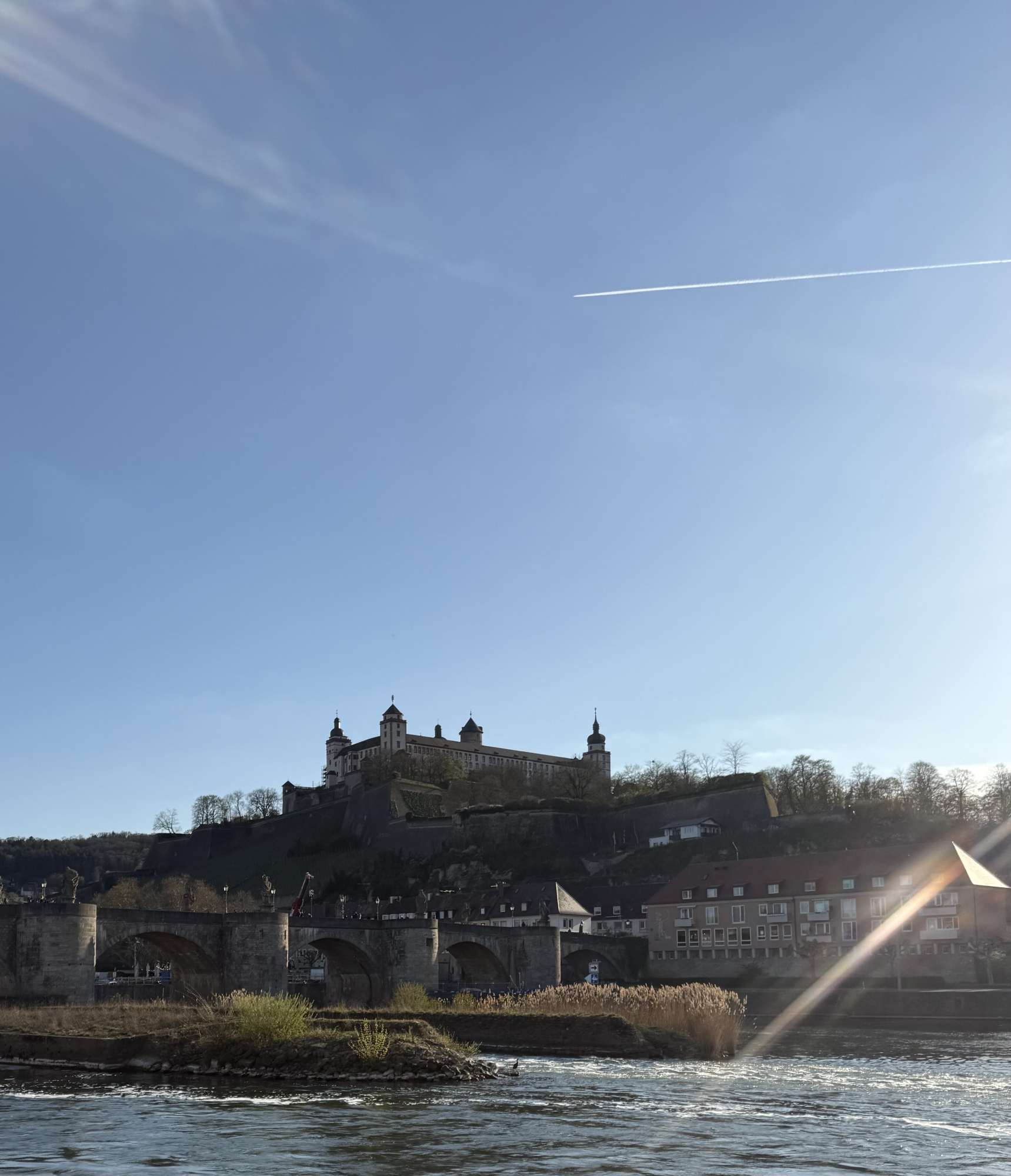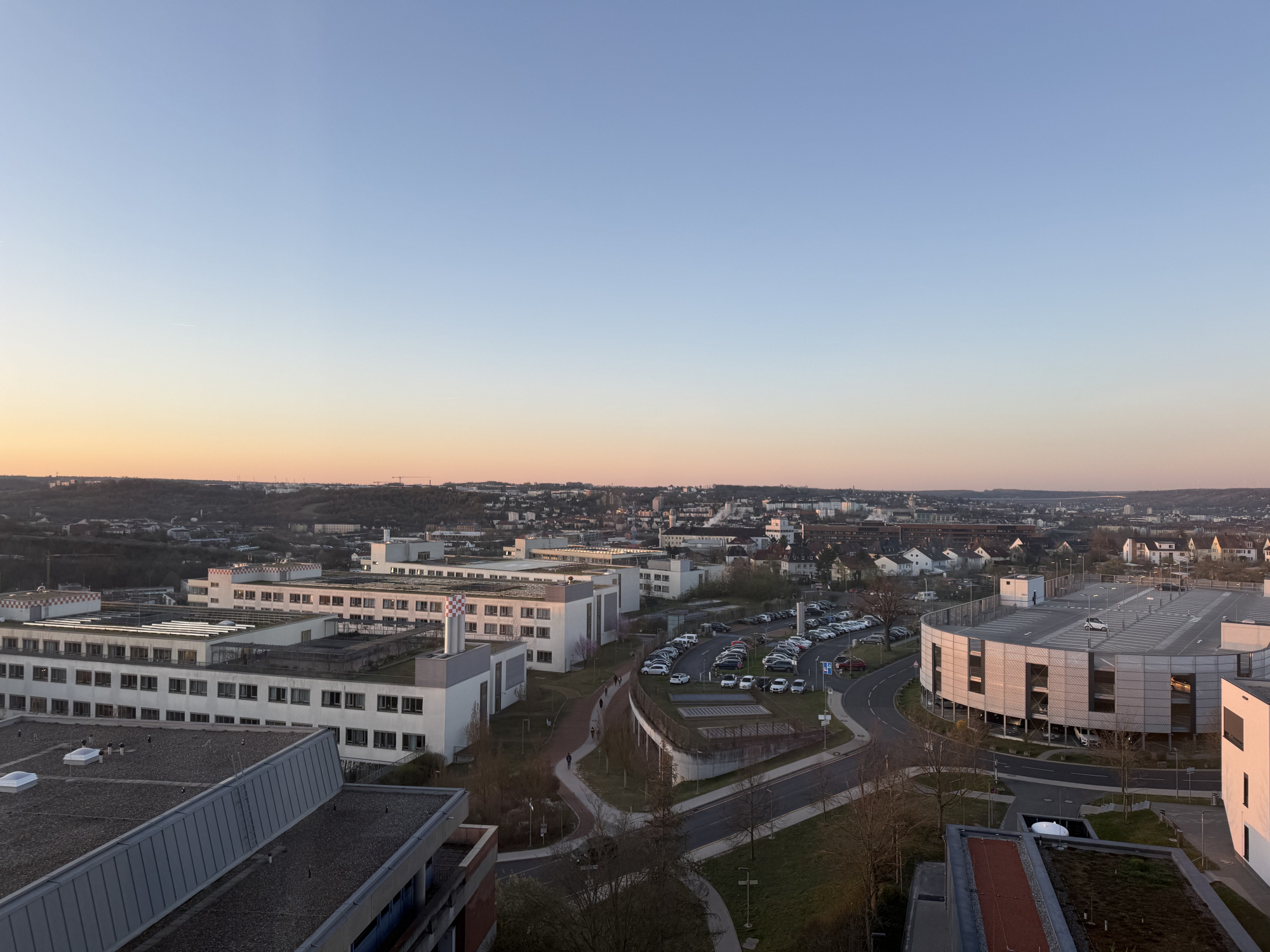International and Domestic exchange
Hiroki Utsumi
Clinical training report from the University of Würzburg
I completed my clinical training at the University of Wurzburg in Germany for four weeks from April 7 to May 2, 2025, and I would like to report on this here. There are two reasons why I wanted to study abroad in Germany. First, the United States and Germany were presented as options for study abroad destinations in the sixth year of 2025, and when I thought about practicing medicine in Japan in the future, I thought that studying in Germany, which has a universal health insurance system like Japan, would be more practical and meaningful than studying in the United States, where private medical care is the norm. Secondly, I became particularly close with the German students who came to Japan to study last year, and through my interactions with them, I learned a lot about the differences in medical care and culture between Germany and Japan, and I felt a strong desire to experience them with my own eyes. Here, I will write about what I learned and felt, focusing on my experiences during my training and study abroad.
School of Medicine of the University of Würzburg has a long history of producing many famous researchers and doctors. In particular, Dr. Roentgen, who discovered X-rays, graduated from this university, and the campus has an Roentgen Museum that commemorates his achievements. It is also the alma mater of Philipp Franz von Siebold, who contributed greatly to the development of Western medicine in Japan, so the university has a deep connection to Japanese people as well. I spent the first two weeks of my training in Department of Medicine. Starting this year, students are required to specify Department of Medicine when applying, and there is no opportunity to train in Department of Medicine alone at my own university, so this was a very valuable experience.
In the first week, we observed outpatient treatment using SPECT and scintigraphy, and inpatient treatment using radioisotopes, and in the second week, we learned mainly about outpatient treatment and imaging diagnosis specialized for thyroid diseases. Not only did I deepen my understanding of nuclear medicine through the practical training, but I was also able to experience blood sampling and ultrasound on patients. What was particularly impressive was the structure of the hospital rooms. Since patients who have taken radioisotopes cannot freely enter and leave their rooms, each room has a terrace with a garden, and the design was designed with the patient's QOL in mind. In addition, a Japanese professor, Professor Higuchi, is affiliated with Department of Medicine at the University of Würzburg, and I had the opportunity to hear various stories from local doctors. Although I was unable to meet him due to schedule conflicts, I was strongly encouraged by the fact that a Japanese person is active at the forefront overseas. I hope that students from next year onwards will be able to meet him.
The last two weeks were spent in Medical Emergency and Intensive Care Medicine. At the University of Würzburg, each medical department has its own building, and each department deals with emergency patients. I was taken care of in the emergency department of the cardiology department, where many patients with acute cardiovascular diseases were transported. Since most of the doctors working there are cardiologists, they are in charge of everything from diagnosis to catheter treatment for diseases such as myocardial infarction, and I felt that it was an ideal system with no time loss. I also witnessed the reality that many patients with illegal drug poisoning were transported, and I strongly felt the difference from Japan. I did my training in this department with local students. They had been training in this department for four weeks, and I was particularly surprised by their high level of independence. They were responsible for interviewing patients in the ward, doing physical examinations, taking blood samples, managing dialysis equipment, etc., and they were able to insert CV ports by themselves if the supervising doctor was present. This was a big surprise, as in Japan, this is often the responsibility of doctors in the latter stages of training or later. I was impressed by how proactive the students were in dealing with emergency patients, attempting to draw blood from patients in shock themselves and reading out the data to share with the rest of the team.
Looking back on my training overall, I feel that it was very good that I was able to do my training in the Nuclear Department of Medicine first. The teachers in the Nuclear Department of Medicine had more time than emergency care sites where emergency patients are brought in one after another, and they explained things to me carefully in English, so I was able to learn calmly even though I was anxious about my first training abroad. I also realized that I should have studied medical English more. I felt that the medical English quizzes I took in Professor Furuse's class in my lower years were very useful, so I reviewed the materials from that time before starting my training. However, when it came to more specialized conversations, textbook knowledge was not enough, and I often had to look up words I didn't understand on the spot. The Internet connection was unstable in the university hospital, and there were many times when Wi-Fi was not available, and I sometimes had trouble understanding the medical English I needed in such situations. Unlike regular English, medical English is difficult to explain with other English words. Furthermore, because German medical words are similar to medical English, medical English was sometimes spoken with a slight German accent. Therefore, I was able to interpret familiar words even if the pronunciation was different, but when it was an unfamiliar word, I sometimes found it difficult to follow the conversation. I realized how important it is to be able to say the names of diseases and procedures in English on a regular basis.
In terms of my life in Germany, I was very well taken care of by the German students who came to Japan last year, as well as the students who came this year and those who are planning to come next year. I received generous support even before I arrived, such as arranging transportation from the airport, transportation to the dormitory, and preparing daily necessities. Even after I started studying abroad, I was taught a lot about shopping, eating, sightseeing, and German-specific games, and was able to experience and learn about cultural differences firsthand. They helped me with so many things that I can't write them all here, and I was reminded of the importance of friends who support me in a foreign land. I strongly recommend that students who are thinking about studying abroad in the future actively interact with as many international students as possible from an early stage, not just the international students in the year they will be studying abroad.
Finally, I would like to express my sincere gratitude to the professors at Hyogo Medical University, the professors and students at the University of Würzburg, and all the people who were involved in giving me this wonderful opportunity. Thank you very much.

